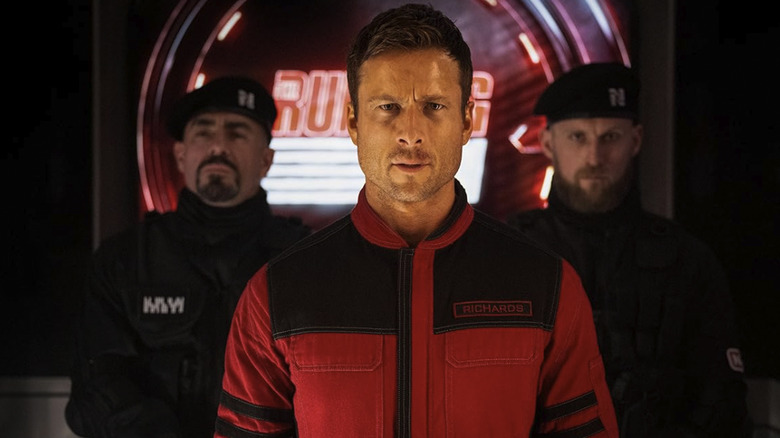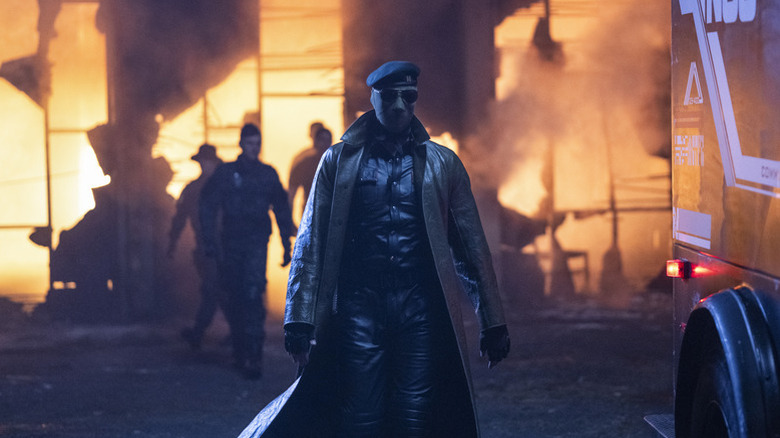The Running Man's Best Idea Was Not In Stephen King's Book
This post contains spoilers for "The Running Man."
"The Running Man" is finally here, with Edgar Wright adapting the book of the same name by acclaimed writer Stephen King, written under his Richard Bachman pseudonym. The movie is set in a dystopian world ruled by corporations, and is a takedown of capitalism and reality competition shows. It focuses on Ben Richards (Glen Powell), a hardworking blue-collar man who is coerced into participating in the titular "The Running Man" TV show, a competition series where contestants try to survive for 30 days while being hunted down on national TV by killers.
Though it wasn't the best Stephen King adaptation of 2025 or the best Richard Bachman adaptation of the year (that distinction goes to "The Long Walk"), the movie does do interesting things with the source material that keeps it fresh and distinct from Paul Michael Glaser's 1987 film that starred Arnold Schwarzenegger. The biggest tweak, of course, is that Wright's film changes the ending to the story, combining the ending of the novel and the 1987 film to create something new.
These changes make for a much more entertaining ending than the bleak conclusion of the novel, but even if some of /Film's finest think Edgar Wright's version botches the source material's message, there is one element where the film makes a grand addition to the text. That's because the best idea in the movie is entirely original to it, nowhere to be found in the book.
I'm talking about Lee Pace's lead hunter character, Evan McCone, actually being a former Running Man contestant who took a deal to work for the network by killing new contestants.
Edgar Wright's Running Man provides a cruel twist of fate
In the movie, McCone is not just some ruthless, sadistic killer, but a performer who delights in putting on a show. As played by Pace, he's practically a "Metal Gear Solid" villain — not just because of his mask and outfit, but because he literally names his weapons. The guy even has a catchphrase.
Toward the end of the film, Ben is led to believe that the hunters broke the game's rules and killed his family. Blinded by grief and rage, Ben goes on a killing spree and takes out the hunters, but when he faces McCone, the hunter reveals he was actually once a contestant on "The Running Man" — and not just any contestant, but the one from the show's first season that had survived the longest. Like Ben, he was offered the choice of taking a contract to work for the network, becoming a hunter with his own crew and living a comfortable life.
This reveal is a cruel twist of fate, speaking to the central idea that no one can ever win "The Running Man" because that'd give too much hope to those disillusioned with the network. Contestants can survive a long time and even become temporary celebrities, but the authoritarian regime can't have a symbol of hope live long enough to spark the fire of rebellion. What's more, as McCone reveals, even as a "free" man, his family is still kept away from him, essentially hostages of the network so he never forget who he's working for.
Surprisingly, this was not in "The Running Man" novel, so for all the talk about how the movie changes things, the best idea in Edgar Wright's adaptation is entirely original, yet still feels perfectly fitting for this story.

